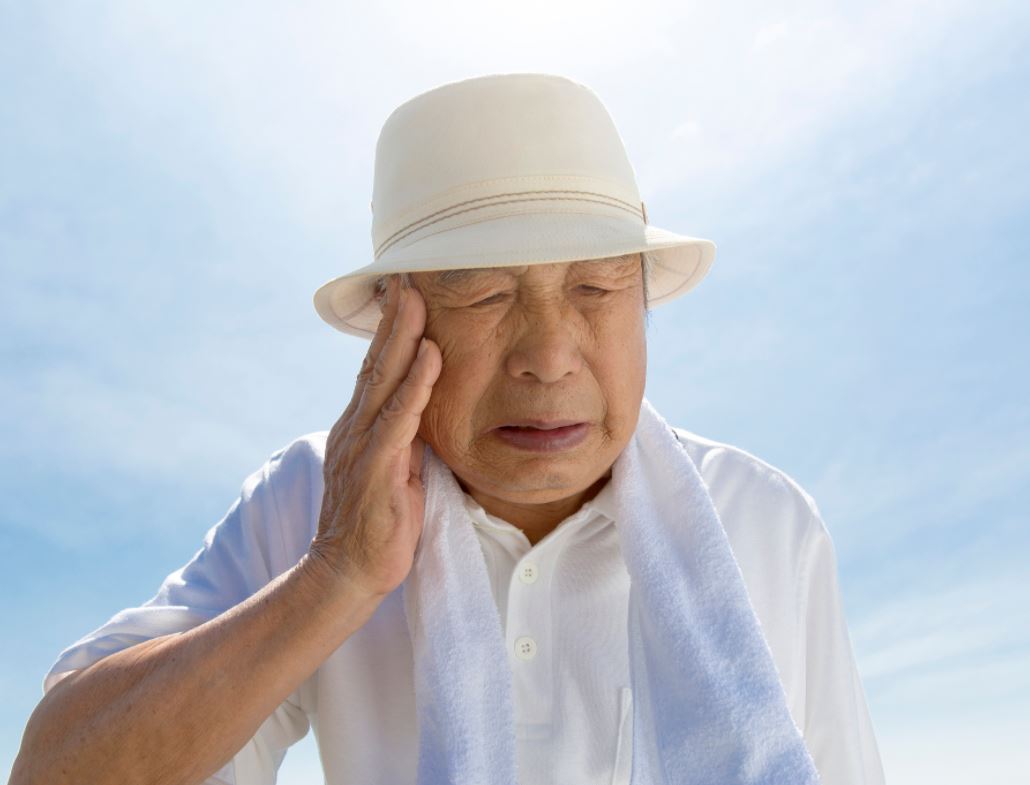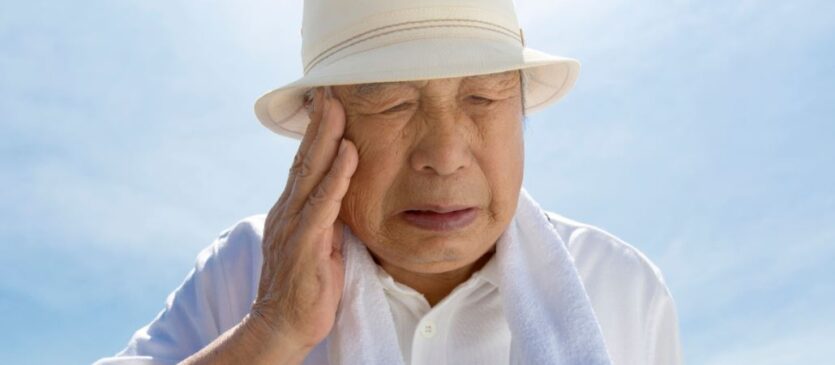As the mercury climbs and we bear the brunt of summer, it’s important to take note of these heat stress safety tips for seniors to keep them safe and cool.
The summer heat is here, and while this may sound fun and sun and trips to the beach for us, the case many not be the same for the elderly. In fact, for the elderly, exposure to excessive heat can be dangerous.
Older adults and those with chronic medical conditions are at high risk of developing heat-related illnesses.

Therefore, as the temperature climbs, it’s important to be proactive, alert, and to take precautions to manage the heat and avoid ailments or emergencies this summer.
Why are Seniors at Higher Risk of Heat Stress?
Older people’s bodies respond and adjust slower to rapid temperature changes. They may also be more likely to ignore or not recognize the symptoms, so it’s best for family members or caregivers to be alert. Furthermore, seniors are also more likely to have existing medical conditions that make them more prone to weakness and adverse reactions due to heat.
How to Stay Safe this Summer with Heat Stress Safety Tips
Heat stress happens when the body can’t regulate the excess heat, often during hot weather. The body’s core temperature rises and the heart rate increases. When a person continues to store heat, they begin to lose concentration and it makes it difficult for them to focus. For elderly people and those with chronic illnesses, this can also pose danger, making them more sick and prone to fainting, or even death if not addressed immediately.
Here are some heat stress safety tips for seniors to keep them cool and safe:
- Stay away from direct sun exposure. Plan your activities when it’s less hot, like early morning or when the sun starts to set.
- Make sure there’s proper ventilation. Let your elders spend time in a cool place, if possible in air-conditioned spaces.
- Stay hydrated. Let your elderly drink plenty of cool water and avoid those with alcohol or caffeine as these can make them urinate more and lose water.
- Make sure they’re appropriately dressed. Make them wear loose, light-colored clothes. Dark-colored garments absorb heat and make you feel hotter. When going out, make sure they are wearing wide-brimmed hats.
- Get sun protection. Make sure they have sunscreen when going out, as elderly skin are more sensitive to the harmful rays of the sun.
- Take baths. When they’re feeling warm, allow them to have frequent showers, baths, or sponge baths. You may also put wet wash cloths or towels with cool water to put on their necks, armpits, wrists, and ankles to cool them down.


Recent Comments